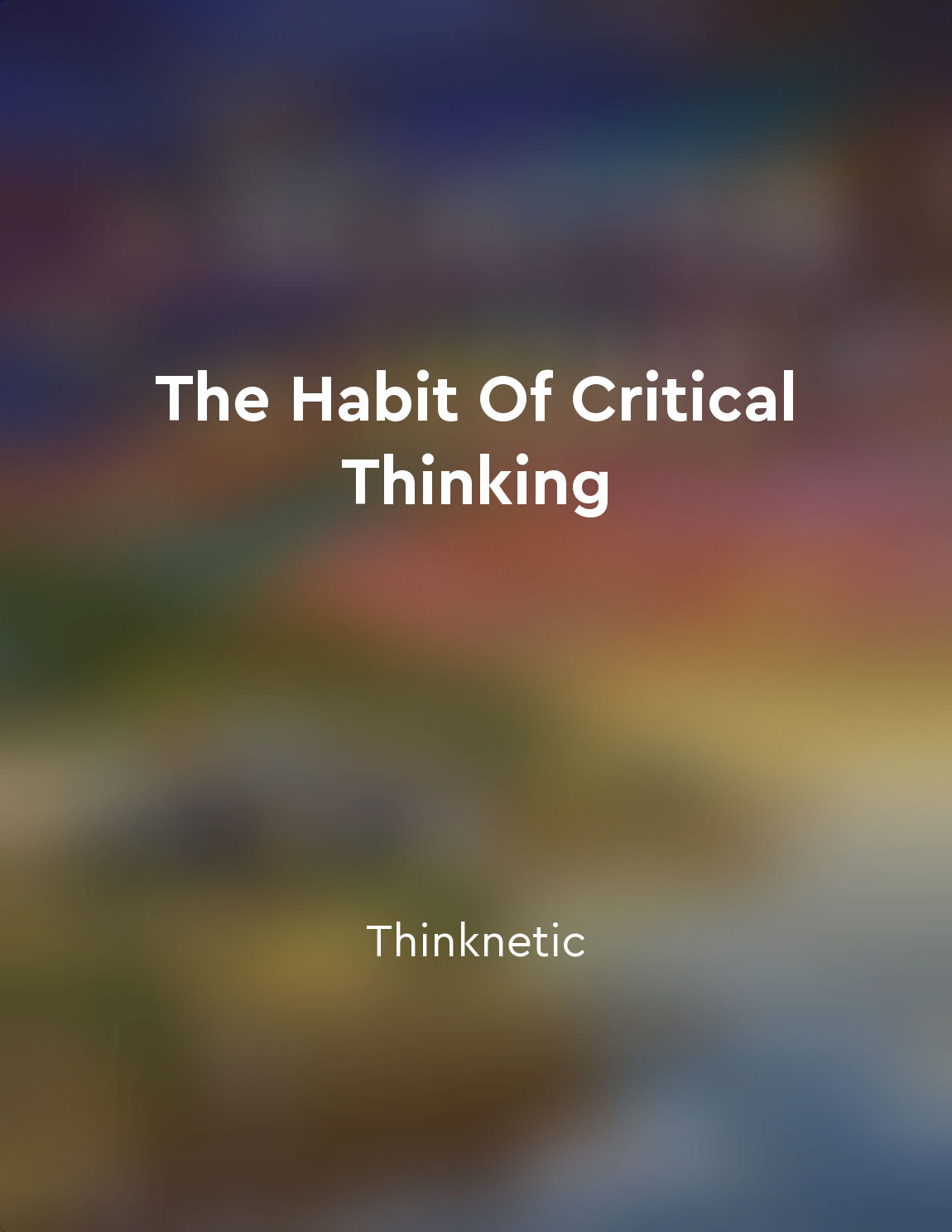Meaningful teaching requires selfawareness and reflection from "summary" of The Courage to Teach Guide for Reflection and Renewal by Parker J. Palmer
To teach meaningfully, one must first look inward. Teaching is not just about transmitting knowledge from the teacher to the student; it is about creating a connection that fosters growth and learning. This connection starts with self-awareness - an understanding of one's own values, beliefs, and biases that inevitably shape the way one teaches. Without this self-awareness, a teacher may unknowingly project their own insecurities or biases onto their students, hindering the learning process. Reflection is another key component of meaningful teaching. It is through reflection that teachers can critically examine their experiences in the classroom, identify what worked well, and what could be improved upon. By taking the time to reflect on their teaching practices, teachers can continually grow and evolve, becoming more effective educators in the process. Self-awareness and reflection go hand in hand - one cannot truly exist without the other. Self-awareness allows teachers to recognize the areas in which they need to grow, while reflection provides the space for them to actively work on improving their practice. Together, these two components create a powerful foundation for meaningful teaching. When teachers are self-aware and reflective, they are better equipped to connect with their students on a deeper level. They are able to empathize with their students' struggles, understand their needs, and provide the support and guidance necessary for them to succeed. In this way, self-awareness and reflection not only benefit the teacher but also have a direct impact on the learning outcomes of their students.- Meaningful teaching requires a constant commitment to self-awareness and reflection. It is an ongoing process of self-discovery and growth that allows teachers to continually refine their practice and create a more engaging and impactful learning environment for their students. By cultivating these qualities within themselves, teachers can truly make a difference in the lives of their students.
Similar Posts
Making sense of life is a journey
Understanding life is not a destination but a continuous journey filled with twists and turns, ups and downs. It is a process o...
Monitor progress and adjust strategies accordingly
Monitoring progress is a critical aspect of effective ultralearning. It involves regularly checking how well you are doing and ...

Pay attention to details
Paying attention to details is a crucial aspect of developing critical thinking skills. It involves being meticulous and thorou...

Decluttering our physical space can lead to mental clarity
When we look around our physical space, what do we see? Is it cluttered with items we no longer use or need, causing a sense of...
Setting goals increases motivation
When we set goals for ourselves, we are essentially creating a target for our minds to focus on. This target acts like a magnet...

Resilience is born from adversity
In life, we are often faced with challenges and obstacles that can seem insurmountable. These adversities can come in many form...
Fostering effective communication skills
Developing effective communication skills is essential for individuals to thrive in today's complex and interconnected world. C...
Setting realistic expectations can lead to greater happiness
One of the key factors that determines our level of happiness is the expectations we have. When our expectations are too high o...

Set clear intentions for your life
In order to live a fulfilling and purposeful life, it is essential to establish clear intentions for yourself. Setting intentio...
Embrace change as an opportunity for growth
Change is an inevitable part of life. It can be unsettling and disruptive, causing discomfort and uncertainty. However, change ...

